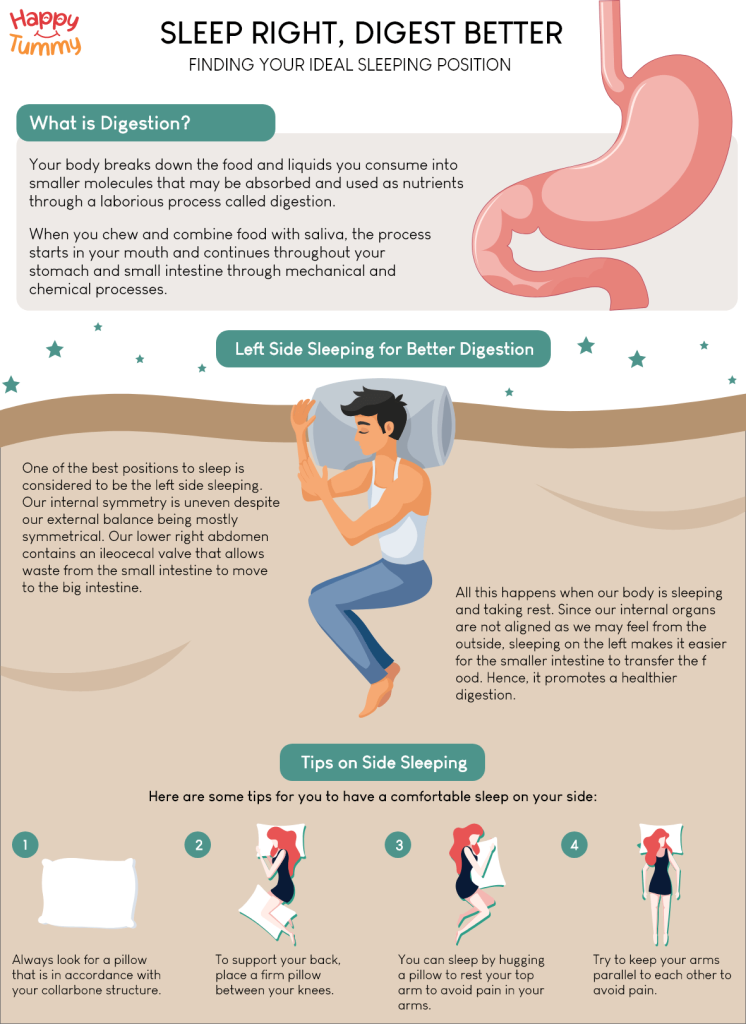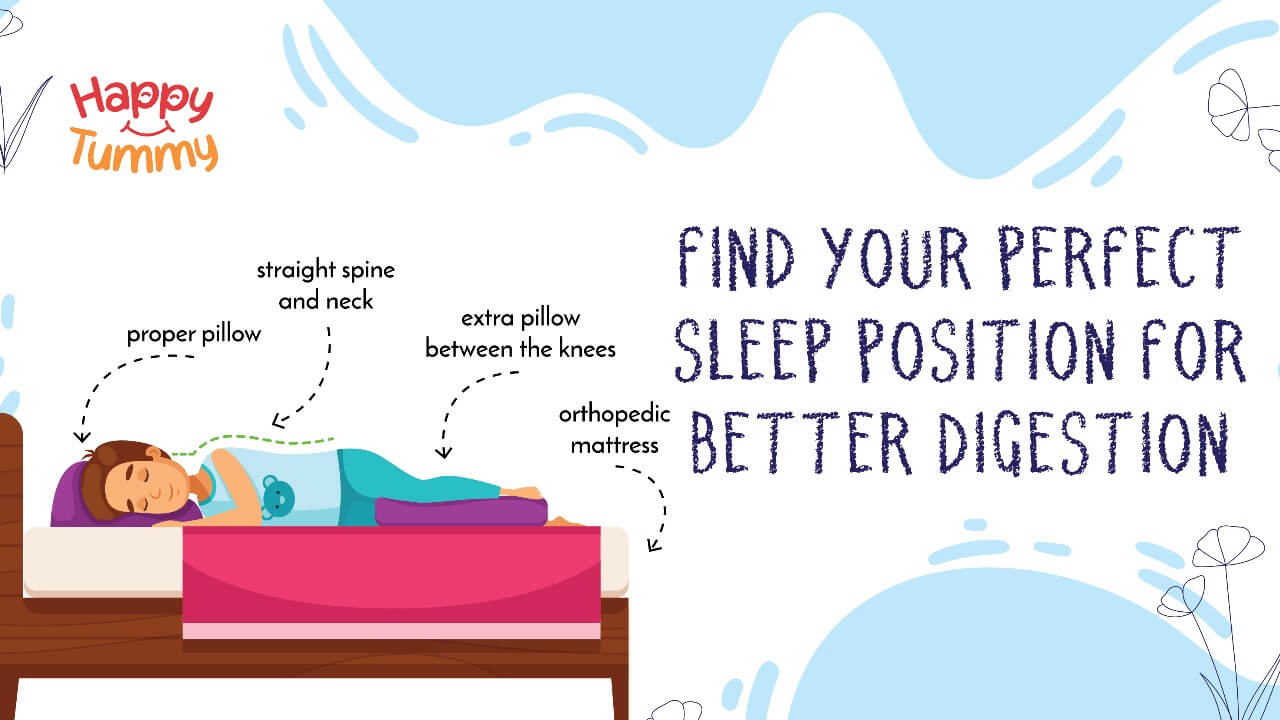Table of Contents
What is that one thing we are deprived of after a long, tiring day at work besides food? Sleeping. Wondering why? Let’s find out.
Our bodies are like batteries that need timely recharge to activate and work the entire day. As much as your body needs a nutritious, loaded meal, it needs proper sleep to start and recharge.
But do you know sleep is not only needed to be able to get up and work the next day? Your body needs a good night’s sleep for healthy digestion and a happy tummy.
Today, we will disclose yet another thing that may surprise many—the magic of sleeping positions or postures.
It is not only about sleeping that helps in overall digestion. Instead, it is about sleeping in the correct position to promote healthier digestion.

What is Digestion?
Before discussing the sleeping positions, let’s quickly understand the digestion process.
Your body breaks down the food and liquids you consume into smaller molecules that may be absorbed and used as nutrients through a laborious process called digestion.
When you chew and combine food with saliva, the process starts in your mouth and continues throughout your stomach and small intestine through mechanical and chemical processes.
Quick Tip: Try the digestive quotient test to know how well your digestive system works. It is a simple test where you need to answer a few questions to understand your digestive health.
Left Side Sleeping for Better Digestion
One of the best positions to sleep is considered to be the left side sleeping. Our internal symmetry is uneven despite our external balance being mostly symmetrical.
Our systems’ ability to direct and process waste is affected by how we sleep, which should be a goal for our general health. We do everything to stay active, fit and healthy. So, why not choose a position that offers the same affection for our digestive system?
According to popular belief, if you sleep on your left side, your body will function more effectively to expel waste in the morning [1]. So how does it work?
Our lower right abdomen contains an ileocecal valve that allows waste from the small intestine to move to the big intestine. All this happens when our body is sleeping and taking rest.
Since our internal organs are not aligned as we may feel from the outside, sleeping on the left makes it easier for the smaller intestine to transfer the food. Hence, it promotes a healthier digestion.
Do you know it is also suggested in Ayurveda to sleep on your left side for a happy tummy [2]?
And there is one more advantage of side sleeping – less snoring. So, for all those who have digestion issues along with snoring, we just told you a perfect position to curb all these problems naturally.
Tips on Side Sleeping
Here are some tips for you to have a comfortable sleep on your side:
Always look for a pillow that is in accordance with your collarbone structure.
To support your back, place a firm pillow between your knees.
You can sleep by hugging a pillow to rest your top arm to avoid pain in your arms.
Try to keep your arms parallel to each other to avoid pain.
Conclusion
It’s simple to undervalue the significance of our nighttime performance—the act of sleeping—in the big theatre of our life, where each day unfolds with its distinct actions and problems.
But there is a hidden gem to be found in the world of sleep: the chance to improve our digestion by picking the correct sleeping position.
In the end, when you give your body the gift of sound, digestion-friendly sleep, you’re laying the groundwork for a healthier and more energetic tomorrow.
On this journey to a healthier digestive system and overall well-being, you can look forward to sweet dreams and a rested tomorrow.
FAQs
Sleeping on the left side is associated with healthier digestion. It is because gravity helps the food move through the intestines much better if lying on the left side.
You should prefer not to sleep on your stomach. It is because all the organs will be pressed when you sleep on the stomach as it will put all the body pressure. Moreover, it can also impact the spinal cord and result in back pain.
You can use a pillow to hug it and sleep to avoid any arm pain. You can also keep a pillow between your knees to support your back.
















